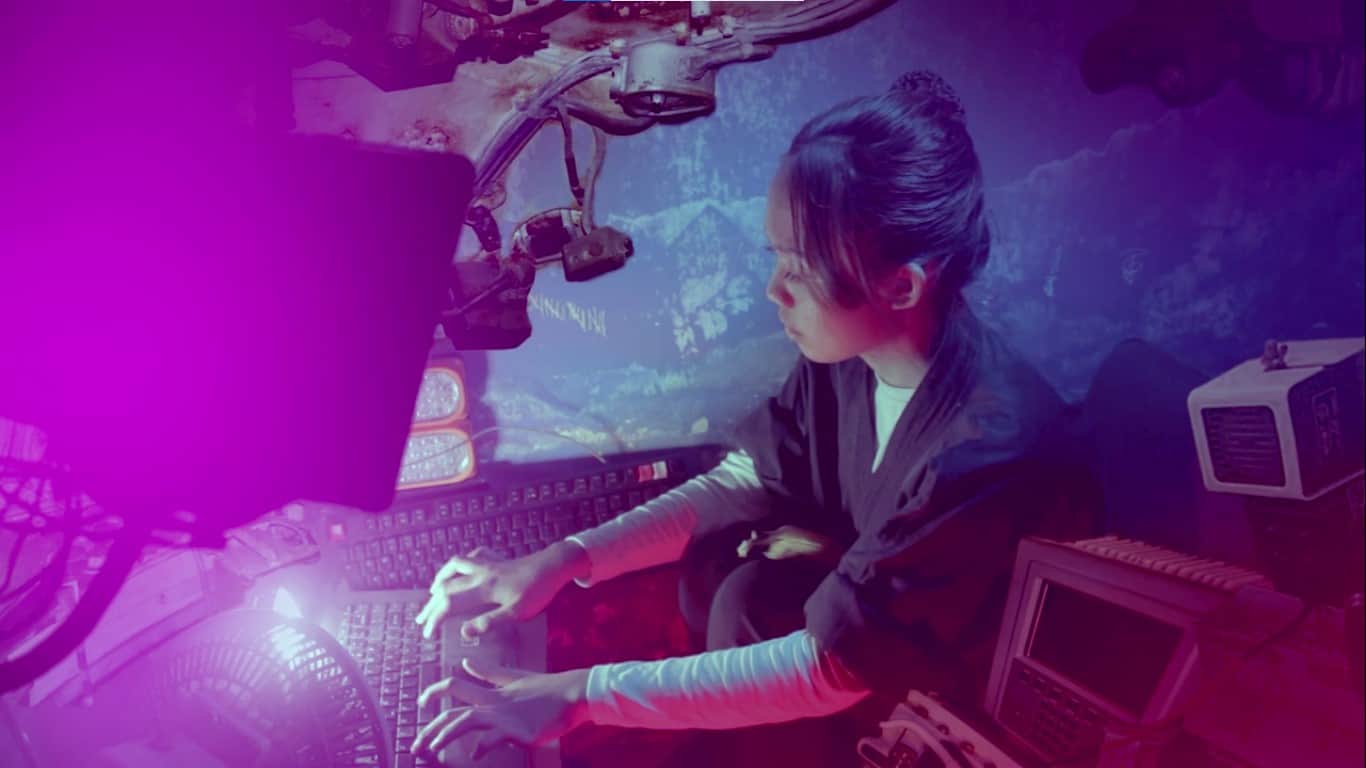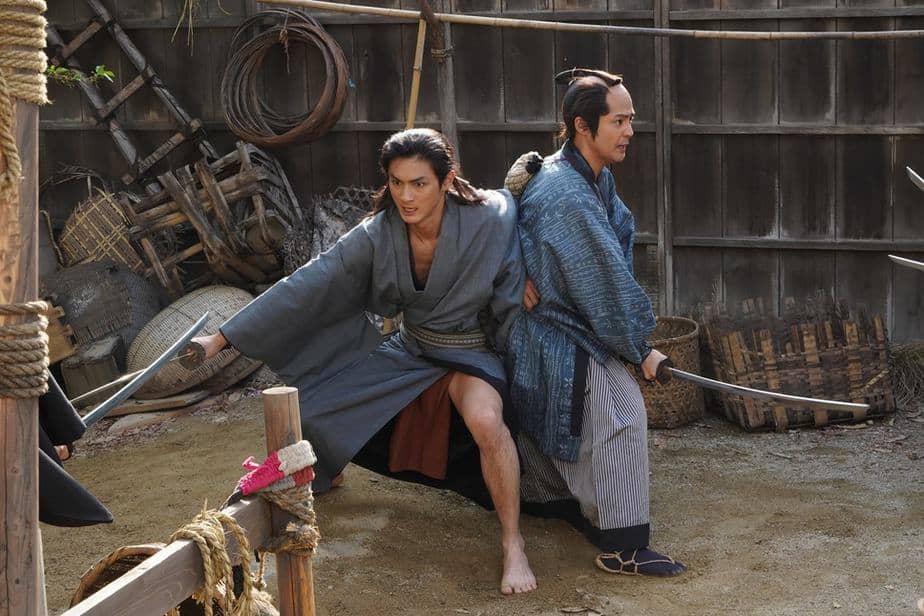Following the excellent “The Flowers of Evil”, Noboru Highuchi, who had already for some time moved away from the Yoshihiro Nishimura group, stayed away from movies for a couple of years, instead directing for TV. In 2022, though, he returned with a rather low-budgeted idol film, which also moves into sci-fi/anime ways. In that regard, it is also worth mentioning the idols featured which include Brazil of MIGMA SHELTER, Kaede Fuuka of Qumari Depart, Miyu Nakagawa of Maneki Kecak and Kaoru Kudo from Up Up Girls. The BLOOD CHERRY group, who provide the adversaries of the protagonists, consists of Hachigatsu-chan (ex. Oyasumi Hologram), Younapi (ex. You'll Melt More), Rutakame Run (MELON BATAKE a gogo),Candy Yamauchi (The Grateful a MogAAAz), Mao (Senosister), pippi (electric ribbon), Rere (MIGMA SHELTER), Kaho Hiniata (ZOMBIE POWDER). It is also worth noting that the movie was produced by Gyuzo of the Tokyo Shock Boys in order to support idols who were unable to perform due to the Covid restrictions.
“Idol Never Dies” review is part of the Submit Your Film Initiative
While the news is reporting the end of the world, idol group Evening Raleigh has gathered in Tochigi Prefecture to hold a training camp as well as film some music videos and live performance videos. Through flashbacks, we are introduced to the protagonist, Megu (the only one actually not a member of an idol group in real life) and how her unusual ways have led her to a reluctant participation in the group. Back in the present, however, something strange seems to be happening, as one of the members, Kahimi, is nowhere to be found, although Megu still sees her appearing here and there. Furthermore, when a fed up Momoka decides to leave, she almost dies to an intense sound from the Earth that is killing everyone, but just before she does, Kahimi gives her an opportunity to go back in time briefly, and take the place of one of her bandmates. This rather weird event actually repeats a number of times, with Megu finally understanding where her bandmates come from, while seeing the wrong in her own ways. The end of the world, however, is still coming while the appearance of an adversary group complicates things even more.
Noboru Iguchi directs a very kawaii film, which obviously has promotional purposes, as the numerous lengthy performances from the girls eloquently highlight. At the same time, and although the quality of the visuals is quite good, the fact that this is a low budget production quickly becomes apparent, both due to the many slow-motion moments, and the repetitive nature of the narrative, with some particular scenes being repeated a number of times, probably in an effort to extend to movie to feature duration. Lastly, that Iguchi invests heavily in the charisma of his numerous protagonists, and not so much on their acting abilities, is also quite evident, with Momoka in the role of Megu standing particularly out.
At the same time, however, Iguchi manages to induce his narrative with a number of social and psychological comments. The whole concept of the idols is a central one, but the most interesting is the one showing that in order for people to understand others, they have to put themselves in their shoes, while also occasionally taking a step backwards and looking at their own behavior. Furthemore, the impact parents have on their children, bullying, and the fact that appearances can be misleading also emerge from the story, with the “trick” of the repetition of the same event through different eyes working quite well in that regard.
The editing gives a sense of speed to the movie, while the various performances are well placed throughout the narrative, providing a relief from the main story, while also moving into music video paths that can be very entertaining on occasion, particularly the ones who feature Brazil as Kahimi, who emerges as the most memorable presence alongside Momoka.
The cinematography is quite bright and colorful, while some special effects, like the one with the sky work well, and others not, as in the AD violent scene for example, obviously having to do with the lack of a bigger budget.
In the end, “Idol Never Dies” deserves a watch for the presentation of its protagonist, but it is obvious that it addresses almost exclusively fans of idol and the particular J-pop music.

















